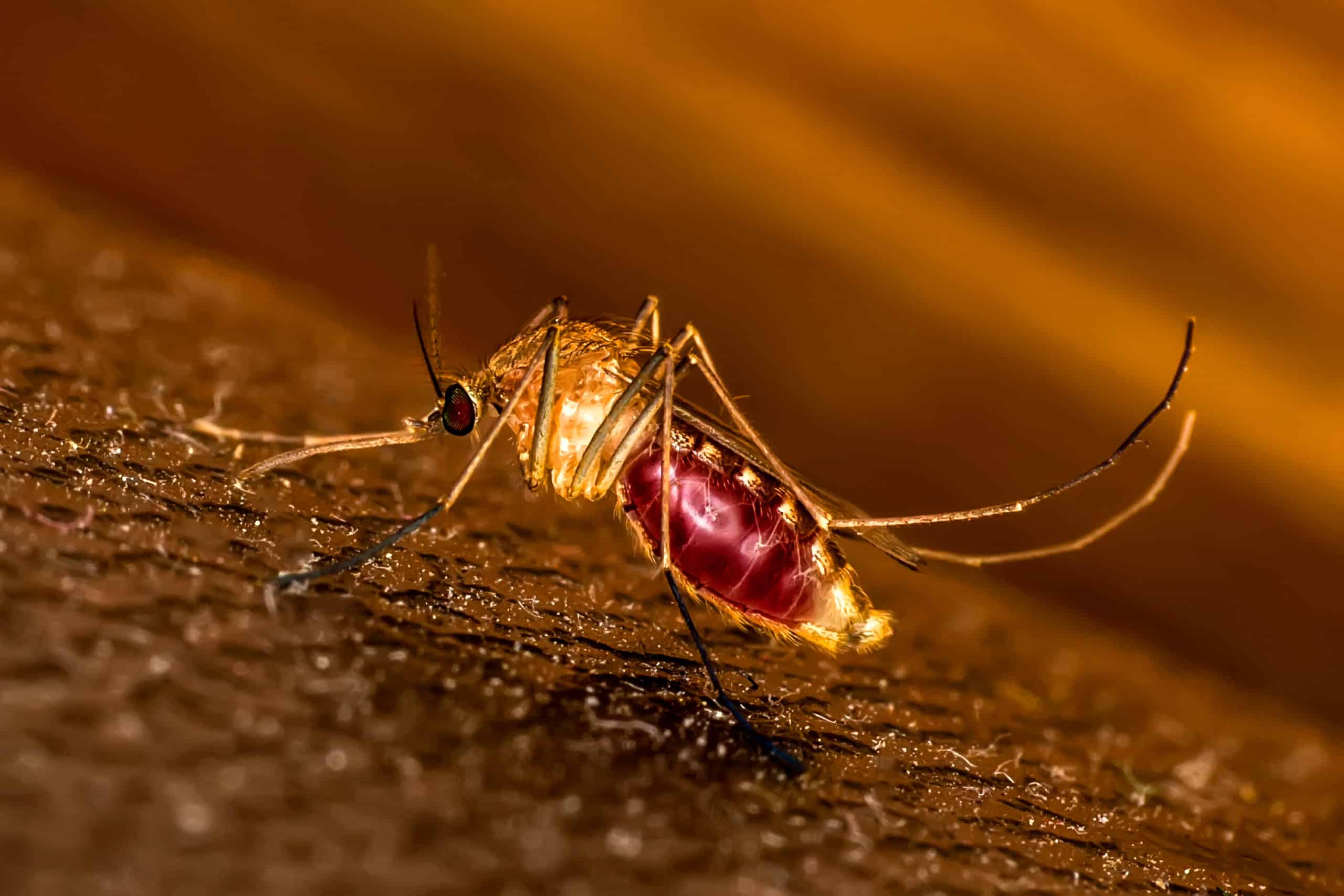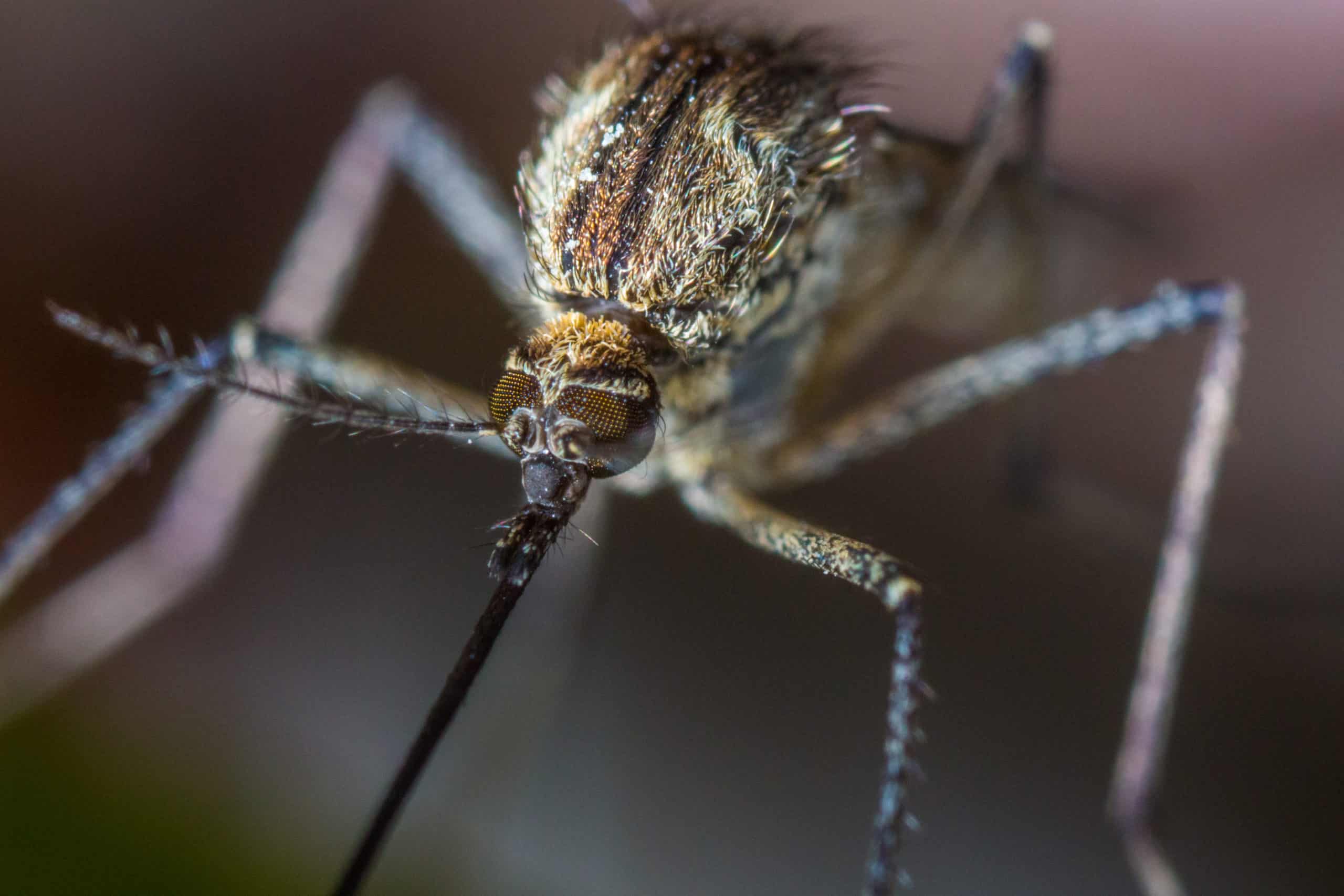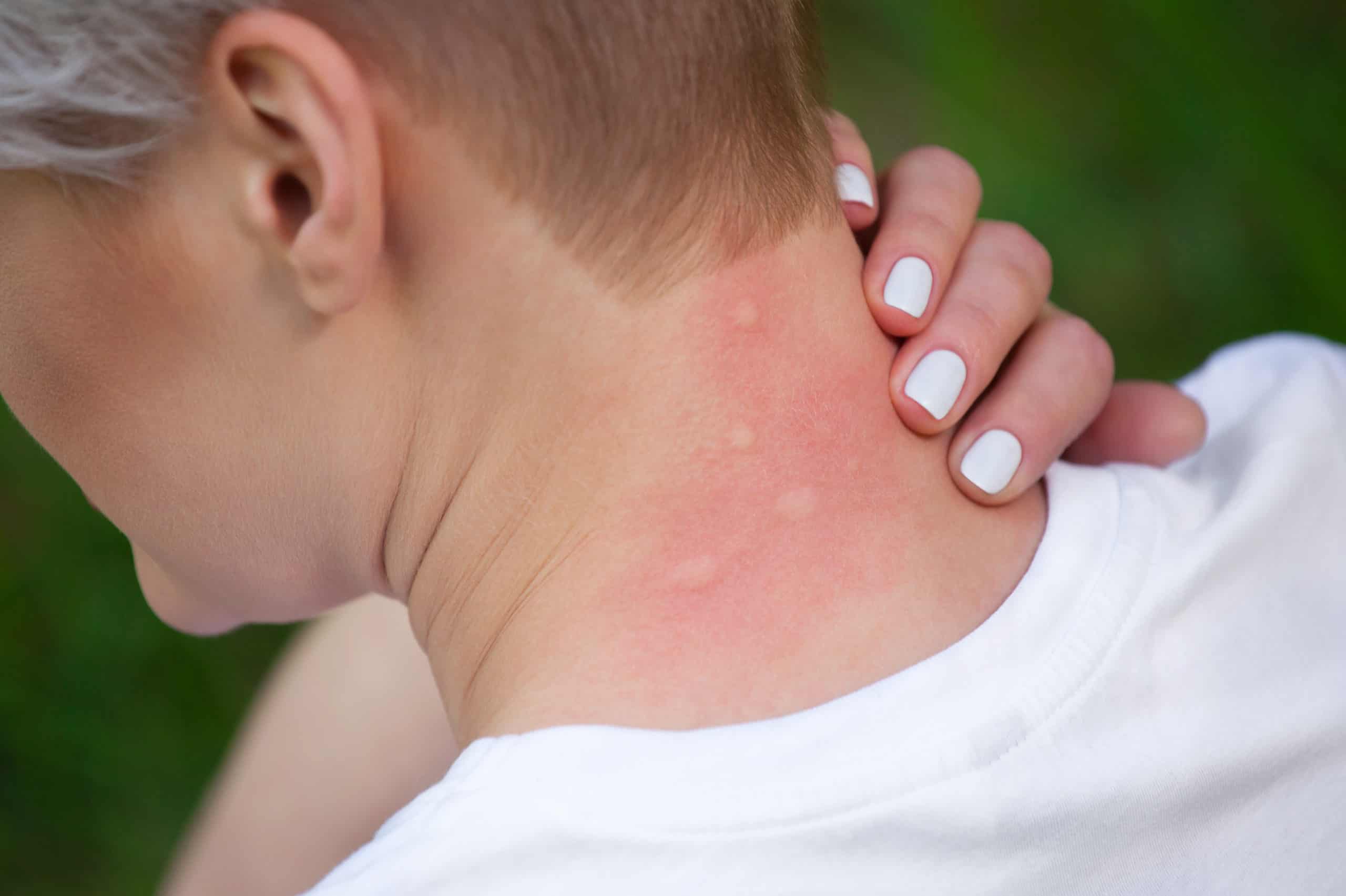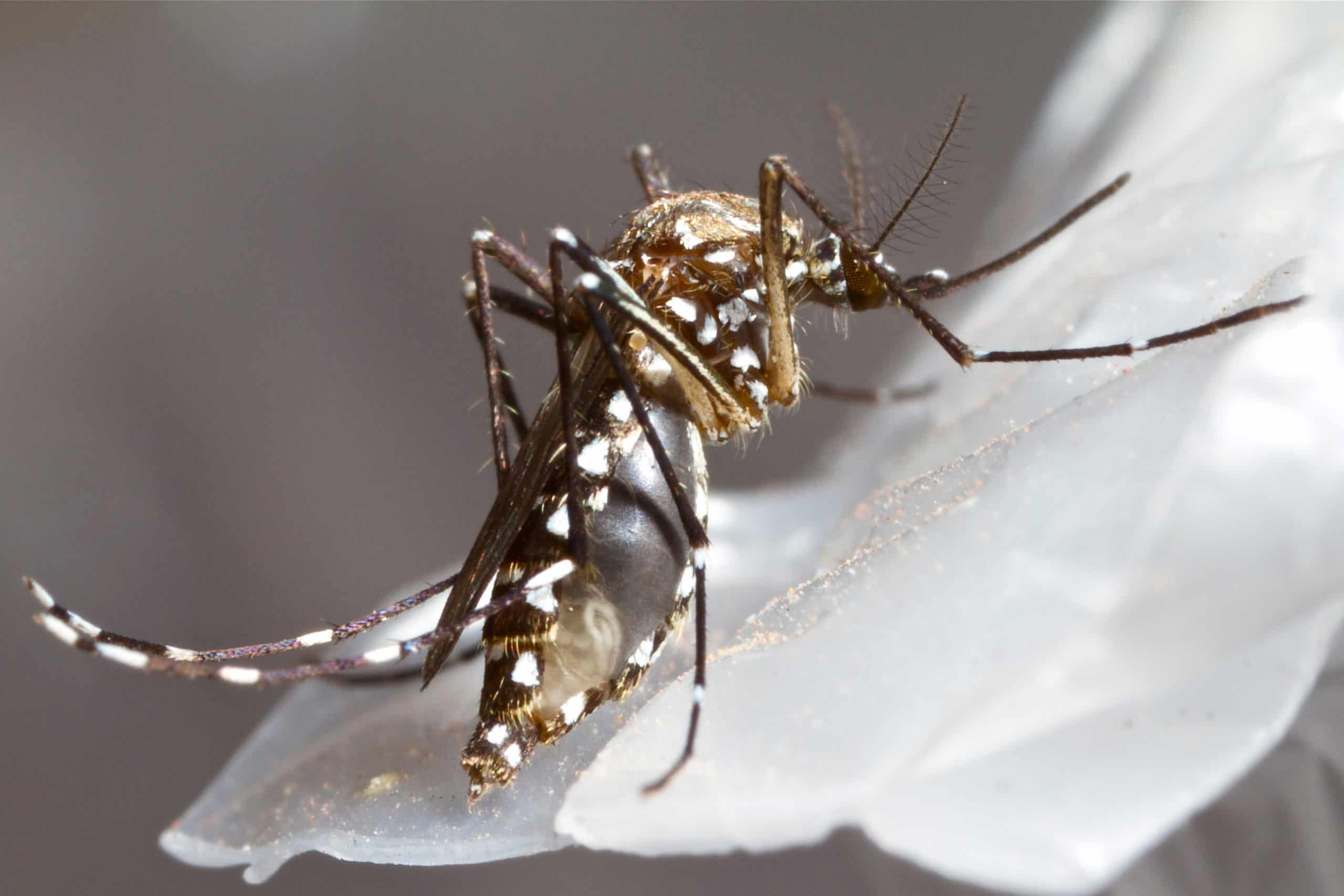Five Fascinating Mosquito Facts
Five Fascinating Mosquito Facts
1. Ancient Foes
Mosquitos have been plaguing this planet all the way back to prehistoric times. Just like the brilliant work of fiction by Michael Crichton’s, Jurassic Park, mosquitos have actually been discovered preserved in substances such as amber, the oldest dating back to roughly over 45 million years ago. Following such discoveries, teams of scientists examined these amber-preserved insects. Entomologist spouses Roberta and George Poinar were even able to extract preserved contents within the gut of these insects which managed to even provide evidence regarding the potential health of dinosaurs millions of years ago.

2. Not All Mosquitos Bite
Biting and blood sucking is what has given mosquitos their infamy across the globe and throughout history. However, out of the 3,500 different mosquito species that exist, only some of them target humans. Furthermore, it’s actually only the females of those species that actually seek out sanguine meals. The females seek out the blood for the production of their eggs, which is why males do not need this form of sustenance and instead prefer to dine exclusively on nectar from flowers.

3. What Actually Happens When a Mosquito Bites?
Mosquitos bite their victims using a small straw-shaped mouth appendage known as a proboscis. The probiscis is made up of six sharp needle-like components called stylets that allow them to pierce the skin of their prey and inject their saliva into the wound. Mosquito saliva is special as it acts as both an anesthetic, masking their presence, and an anticoagulant to improve blood flow. Unfortunately, the saliva also contains proteins that trigger a mild immune response in humans, resulting in the infamous little red, swollen, and itchy bite marks.

4. Mosquitos Are Programmed to Find You
Mosquitos have a myriad of different sensors that indicate our presence. For example, they are attracted to our exhalation of carbon dioxide and actually have three different sensors that specifically help them locate sources of CO2. These sensors are cells called GR1, GR2, and GR3. In genetically modified mosquitos that were no longer able to use their GR3, there was a notable difference in their ability to detect targets, especially from a distance.
Along with CO2, mosquitos are attracted to lactic acid (which is naturally produced in human sweat), body heat, uric acid, and even estrogen.

5. Eliminating Mosquitos Might Be Bad
There is a heated debate within scientific circles as to whether or not the disappearance of all mosquitos would be detrimental to our ecosystems. Some scientists theorize that there would not be large negative effects and that the world would actually adjust to the lack of mosquitos rather easily. On the flipside, other scientists argue the stance that certain species of mosquitos do actually play very important roles within their respective ecosystems and food chains so, if they were to spontaneously disappear, it could potentially harm their local plants, animals, and fellow insects.

Citations
Burgess, L. and Seladi-Schulman, J. Ph.D. (2018) Why do mosquito bites itch? Causes and treatment, Medical News Today. MediLexicon International. Available at: https://www.medicalnewstoday.com/articles/320979#overview (Accessed: January 19, 2021).
Guesgen, M. (2019) 5 Things That Make You a Mosquito Magnet, YouTube. SciShow. Available at: https://www.youtube.com/watch?v=j6MrN9o0BfA (Accessed: August 2020).
Hill, C. and MacDonald, J. (2008) Purdue University. The College of Agriculture: Entomology.
Available at: https://extension.entm.purdue.edu/publichealth/insects/mosquito.html#top (Accessed: April 2020).
How Mosquitos Got Their Taste for Human Blood – What it Means for the Future (2020) SciTech Daily. Cell Press. Available at: https://scitechdaily.com/how-mosquitoes-got-their-taste-for-human-blood-what-it-means-for-the-future/ (Accessed: September 2020).
Hughes, V. (2008) Did the Dinosaurs Bug Out?, The Smithsonian Magazine. The Smithsonian Institute. Available at: https://www.smithsonianmag.com/science-nature/did-the-dinosaurs-bug-out-180940839/ (Accessed: October 2020).
Keubeck, E. (2012) Are You a Mosquito Magnet?, WebMD. Available at: https://www.webmd.com/allergies/features/are-you-mosquito-magnet#1 (Accessed: June 2020).
Mosquitos (2019) National Geographic. National Geographic Partners. Available at:https://www.nationalgeographic.com/animals/invertebrates/group/mosquitos/ (Accessed: April 2020).
Mosquito Bites (2020) Mayo Clinic. Mayo Foundation for Medical Education and Research. Available at: https://www.mayoclinic.org/diseases-conditions/mosquito-bites/symptoms-causes/syc-20375310 (Accessed: January 19, 2021).
Poinar, R. and Poinar, G. (2008) What Bugged the Dinosaurs? – Insects Disease, and Death in the Cretaceous. Princeton University Press.
Pointer, K. and Sullivan, D. Ph.D. (2019) Why Mosquito Bites Itch and How to Stop Them, Healthline. Healthline Media. Available at: https://www.healthline.com/health/why-mosquito-bites-itch#outlook (Accessed: January 2021).
Riley, C. (2016) What If We Killed All the Mosquitos?, YouTube. SciShow. Available at: https://www.yotuube.com/watch?v=e0NT9i4Qnak (Accessed: June 2020).
Saplakoglu, Y. (2018) Here’s Why Mosquito Bites Itch for Such a Long Time, LiveScience. Available at: https://www.livescience.com/62601-why-mosquito-bites-itch.html (Accessed: January 19, 2021).
What Happens to Your Body When a Mosquito Bites You (2019) YouTube. Brightside. Available at: https://www.youtube.com/watch?v=91X8RcJBFwA (Accessed: July 2020).
Enjoy a Pest-Free Year With These 10 Easy Steps
Enjoy a Pest-Free Year With These 10 Easy Steps Enjoy a Pest-Free Year With These 10 Easy Steps Summary: A practical guide to [...]
How Do Pests Contaminate Food?
How Do Pests Contaminate Food? How Do Pests Contaminate Food? Summary: A practical homeowner guide explaining how pests contaminate food through contact, saliva, [...]
The Clear Signs of Bed Bugs in Every Setting
The Clear Signs of Bed Bugs in Every Setting The Clear Signs of Bed Bugs in Every Setting Summary: A setting-by-setting guide to [...]
Odor is an Early Sign of Rodents, Here’s Why
Odor is an Early Sign of Rodents, Here’s Why Odor is an Early Sign of Rodents, Here’s Why Summary: Rodent odors are often [...]
Pest Prevention Tips for Snowy Days
Pest Prevention Tips for Snowy Days Pest Prevention Tips for Snowy Days Summary: Snowy weather pushes pests to seek warmth and shelter indoors, [...]
How Do Ants Spend Winter? What Homeowners Should Know About Ants in Winter
How Do Ants Spend Winter? What Homeowners Should Know About Ants in Winter How Do Ants Spend Winter? What Homeowners Should Know About Ants in [...]

